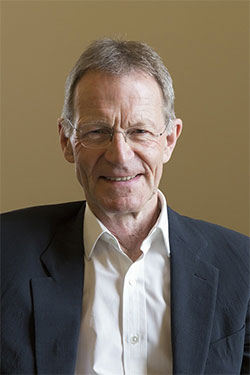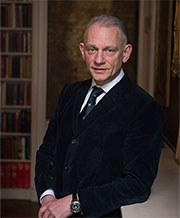Councillor Liz Green, Chair of the LGA's Culture, Tourism and Sport Board, Sir Nicholas Serota, Chair of Arts Council England and Lord Neil Mendoza provided a foreword for the launch of the think piece series.
Councillor Liz Green, Chair, LGA's Culture, Tourism and Sport Board
In December 2023, the LGA published Cornerstones of Culture, the final report of a year-long Commission on Culture and Local Government. Drawing on engagement with over 80 cultural services and organisations and more than 50 case studies, the Commission was overseen by a group of 16 commissioners and led by its Chair Baroness Lola Young. Its report explored the role publicly funded cultural services could play in supporting recovery from the pandemic and how councils could support this.
Since its publication, the context in which cultural services operate has deteriorated still further, as inflation, growing demand for statutory services like social care and wider pressures on local government finances place strain on our national cultural infrastructure.
Last year marked the 75th anniversary of councils investing in the arts and councils. Local councils still remain the biggest public funder of cultural services, but how can this continue when the LGA recently calculated there was a £4bn gap in their overall funding by March 2025, just to keep all services standing still? Although the Government’s commitment of £600m to address some of this shortfall is welcome, the underlying problem persists. Without a long-term, sustainable funding settlement for local government, the situation is unlikely to stay the same, let alone improve.
Despite this, there are causes for optimism. Councils have never had a statutory requirement to fund culture: it is a discretionary service. The fact that they continue to do so regardless, demonstrates that they see its value: as a tool for economic growth; as a pillar of health and wellbeing; as a foundation of high-quality places for residents and visitors; and as a source of hope and joy for everyone in difficult times. We saw how resilient and creative the sector could be during the pandemic. I truly believe that by working together, we can overcome present challenges to secure the future of our national cultural offer.
We cannot afford to be divided. Only by working together to target our shared investment effectively, can we explore every avenue for delivering and protecting these vital community services.
This is why I am delighted to be launching this set of new think pieces on the future of local, publicly-funded cultural services, exploring the role of government, arms-length-funding bodies, combined authorities and councils in establishing a supportive environment in which they can operate. And above all, how local government can be better empowered to deliver vibrant thriving cultural places and services for their communities.
This is the first instalment of a series and we will be calling for new pieces, to be published later in the Spring and Summer.
We hope that this work will bring the ideas of influential thinkers to bear on the future of local publicly funded culture and the role of the council, helping us at the LGA to build our own understanding of what might be possible and supporting us to work with national government on behalf of our member councils and the sector.
Sir Nicholas Serota, Chair, Arts Council England and Commissioner, LGA Commission on Culture and Local Government
The publication of Cornerstones of Culture, the report of the LGA commission on culture and local government was a profoundly important moment. It was a reminder not only of the importance of local government to the cultural life of the country, but it was also a welcome re-statement of shared commitment and ambition. I was proud to serve as a commissioner.
The Arts Council values its partnership with local government. Our Shared Statement of Purpose with the Local Government Association sets out the importance of our work, not only with the LGA, but with councils across England. Their reach in their communities, local leadership and power to convene greatly strengthens our role as the national development agency for the arts, museums and libraries.
However, the context we are working within is changing. The pace of devolution to combined and local authorities has increased, and the recent devolution deals have almost all included commitments to deliver cultural ambitions and to develop partnerships between authorities, the Arts Council and other Department for Culture, Media and Sport (DCMS) arms’ length bodies.
While these developments bring their challenges, this is true of anything new, and we must not lose sight of the huge opportunities. The strengthening of local leadership is welcome. Giving local leaders the ability to take greater strategic oversight allows them to connect new capacities and powers with support for culture. This can only strengthen the cultural sector and increase its contribution to the lives of every everyone.
Of course, we need to work together to make the most of these developments, and I welcome this set of think pieces as an important contribution to our shared thinking about the future.
The Arts Council will work positively with those places that have received devolution, and, as a national agency we will continue our work with local authorities across the country, including those where there is no devolution deal nor a combined authority.
We look forward to being part of the conversation as we progress.
Lord Neil Mendoza, Chair, Historic England and Adviser for the LGA's Commission on Culture and Local Government
Creativity, culture and heritage go hand in hand to foster pride in place, connect communities and boost economic growth for vibrant places. Therefore, devolution represents a significant opportunity for local culture and local communities. It represents a chance for more targeted support for places which have been starved of cultural investment and it allows investment to be shaped in ways that better reflect local need.
As DCMS Commissioner for Culture, I saw first-hand the importance culture has in the UK and how the heritage and culture sectors thrive through collective action and the power of collaboration – together, and with people and places.
Every city, town and village is unique and that uniqueness sits at the heart of the pride people feel about the places where they live and work. Investment, when it understands what makes places special, can stimulate that pride. For example, the regeneration of a derelict historic building or place can lift the entire community and create a sense of vibrancy and excitement – and what’s more, the greenest building is the one that already exists.
This is something that Historic England knows well; our four-year, £95m investment regenerating more than 60 historic high streets across England illustrates just what is possible. From Redruth to North Shields, and from Lancaster to Ramsgate, we are working in partnership with government, local government, partners and communities. This investment has saved or repaired over 500 buildings and improved 76K sqm of public realm space alongside delivering thousands of hours of community engagement and the widest-reaching community-led arts and heritage programme ever organised. Emerging data from the cultural programme tells us that 80% of people feel more pride in place and a part of their community from taking part.
The combination of capital regeneration, community co-production and cultural programming provide the right ingredients for success. This is further demonstrated by the creative cluster hubs now popping up across the country, repurposing historic buildings for inspiring locations for creative businesses and thriving community life.
Devolution can help to unlock further positive action - breathing new life and belief into places that need it most.






